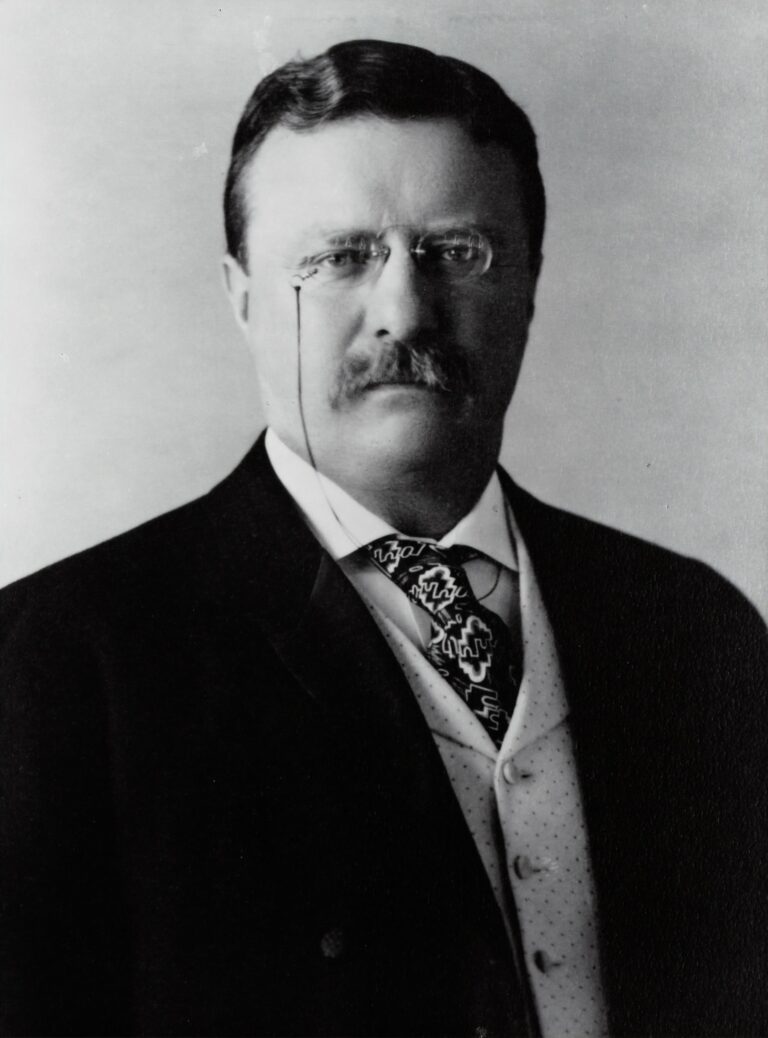Living Your Standards: The Key to Effective Leadership
The Importance of Committing to Standards as a Leader
Leadership is not just about making decisions, delegating tasks, or achieving goals. It is also about being a role model, inspiring others, and creating a culture of excellence. To do so, leaders need to be committed to certain standards and values that guide their behavior and decision-making.
Committing to standards and values is essential because it provides a sense of direction and purpose. Without a clear set of values to guide their actions, leaders can become lost or unsure of how to proceed. Standards and values help leaders to prioritize what is important and make decisions that align with their vision and mission.
However, committing to standards and values is not always easy. It requires discipline, effort, and sacrifice. It means making choices that may not always be convenient or popular, and it may even involve going against the norm or the status quo. It can be challenging to maintain commitment, especially when faced with setbacks, obstacles, or resistance from others.
The role of standards in guiding behavior cannot be overstated. Standards are like a compass that keeps leaders on track and heading in the right direction. They provide a clear set of guidelines and expectations for behavior, which helps leaders to avoid making decisions that are inconsistent with their values. Standards provide a framework for decision-making, which enables leaders to act with integrity, transparency, and accountability.
Moreover, standards are not just about personal behavior. They also influence the behavior of others. When leaders commit to high standards of behavior, they set an example for others to follow. They create a culture of excellence, where everyone strives to do their best and contribute to the success of the team. This kind of culture fosters collaboration, innovation, and growth.
Committing to standards and values is crucial for effective leadership. It provides direction, purpose, and clarity in decision-making. However, maintaining commitment can be challenging, especially when faced with obstacles or setbacks. By understanding the role of standards in guiding behavior and leading by example, leaders can create a culture of excellence that inspires others to do their best and achieve great things.
What are you committed to?
As a leader, it is essential to define what you are committed to in terms of personal values and standards. These values and standards should guide your behavior and decision-making in both personal and professional settings.
Defining personal values and standards requires self-reflection and a deep understanding of what is important to you. By taking the time to reflect on your values, you can identify the principles that you want to live by and prioritize in your life. It is essential to understand what motivates you, what inspires you, and what brings you fulfillment.
Identifying your values and standards will help you make more intentional decisions and take actions that align with your priorities. It will also help you stay true to yourself and your beliefs. When you are clear about your values, you are less likely to be swayed by external pressures or influenced by other people’s opinions.
Effective leaders often share common values and standards. Integrity, accountability, and transparency are among the most important values that successful leaders prioritize. Integrity means staying true to your word and upholding your values, even when it is difficult. Accountability means taking responsibility for your actions and the actions of your team. Transparency means being open and honest about your decisions and actions.
Other common values among effective leaders include respect, empathy, collaboration, and growth. Respect involves treating others with dignity and recognizing their contributions. Empathy involves understanding and relating to the needs and feelings of others. Collaboration involves working together towards a common goal. Growth involves continuous learning and improvement.
It is essential to note that personal values and standards may differ from person to person, and there is no one-size-fits-all approach. Each individual’s values and standards should be unique to their circumstances, goals, and aspirations. However, the values and standards that successful leaders prioritize tend to align with the principles of ethics, integrity, and authenticity.
Defining personal values and standards is critical for effective leadership. It requires self-reflection and a deep understanding of what is important to you. By identifying your values and standards, you can make intentional decisions and stay true to your beliefs. Successful leaders often prioritize values such as integrity, accountability, and transparency, as well as respect, empathy, collaboration, and growth. These values serve as a guiding force for leaders, enabling them to make decisions that align with their vision and mission.
Who are you committed to being?
As a leader, it is crucial to define not only what you are committed to but also who you are committed to being. Your personal identity as a leader influences your behavior, decision-making, and how you show up in the world.
Defining personal identity as a leader requires an understanding of your strengths, weaknesses, and values. It involves identifying your unique qualities, your leadership style, and your vision for yourself and your team. Your personal identity shapes how you lead and how you interact with others.
The impact of identity on behavior and decision-making is significant. Your personal identity influences the choices you make and the actions you take. For example, a leader who identifies as a servant leader will likely make decisions that prioritize the needs of their team members over their own needs. Similarly, a leader who identifies as an innovative thinker will likely make decisions that prioritize creativity and risk-taking.
Your personal identity also affects how others perceive you as a leader. It shapes your reputation and how others interact with you. Leaders who are consistent in their identity are seen as authentic, trustworthy, and reliable. In contrast, leaders who lack clarity in their identity may be perceived as indecisive or inconsistent.
Effective leadership identities are diverse and reflect the unique qualities and strengths of each leader. However, there are some common leadership identities that are effective. For example, a transformational leader is committed to inspiring and motivating others to achieve their full potential. They are visionaries who communicate their vision to their team members and work collaboratively to achieve it.
Another effective leadership identity is a servant leader. A servant leader is committed to serving the needs of their team members and putting their needs above their own. They lead with empathy and compassion, seeking to create a culture of trust and respect.
An authentic leader is committed to being true to themselves and their values. They are transparent in their communication and consistent in their behavior. They lead with integrity and inspire others to do the same.
Defining personal identity as a leader is critical for effective leadership. It requires an understanding of your strengths, weaknesses, and values. Your personal identity influences your behavior, decision-making, and how you show up in the world. Effective leadership identities are diverse and reflect the unique qualities and strengths of each leader. Transformational, servant, and authentic leadership identities are examples of effective leadership identities that prioritize inspiring and motivating others, serving the needs of team members, and being true to oneself and one’s values.
The importance of committing to standards
Committing to standards is essential for strengthening leadership. When leaders commit to certain standards, they demonstrate integrity, accountability, and a commitment to excellence. This commitment inspires confidence and trust in their team members, stakeholders, and customers.
Committing to standards also helps leaders to avoid inconsistency in their behavior and decision-making. Inconsistency erodes trust and credibility and can damage a leader’s reputation. Leaders who are inconsistent in their behavior may be perceived as untrustworthy or unpredictable, which can negatively impact their ability to lead effectively.
Leading by example is another benefit of committing to standards. Leaders who are committed to high standards of behavior set an example for their team members to follow. When leaders hold themselves to the same standards they expect from their team, they demonstrate authenticity and build trust. This kind of leadership fosters a culture of excellence, where everyone strives to do their best and contribute to the success of the team.
Furthermore, committing to standards creates a framework for decision-making that is consistent and aligned with the leader’s values and vision. When leaders have a clear set of guidelines and expectations for behavior, they can make decisions that are in line with their mission and vision. This kind of decision-making fosters transparency and accountability, as leaders can explain their choices and how they align with their values and standards.
Committing to standards also encourages continuous improvement. When leaders commit to high standards, they are constantly seeking to improve themselves and their team members. They seek feedback, identify areas for improvement, and take action to make changes that align with their standards. This kind of commitment to growth and development creates a culture of learning, innovation, and progress.
Committing to standards is essential for effective leadership. It demonstrates integrity, accountability, and a commitment to excellence. It helps leaders to avoid inconsistency in their behavior and decision-making, build trust and credibility, and lead by example. It creates a framework for decision-making that aligns with the leader’s values and vision and encourages continuous improvement. Leaders who commit to high standards set themselves and their team members up for success and inspire greatness in those around them.
Overcoming obstacles to commitment
Maintaining commitment to standards can be challenging, especially during difficult times. Leaders may face obstacles, setbacks, and resistance that can make it difficult to stay committed to their values and vision. However, there are strategies and techniques that leaders can use to overcome these obstacles and maintain their commitment.
Strategies for maintaining commitment during challenging times include setting achievable goals, breaking down complex tasks into smaller, more manageable steps, and focusing on progress rather than perfection. It is also essential to maintain a positive mindset and focus on the long-term benefits of staying committed to standards. Leaders can also seek inspiration from others who have faced similar challenges and overcome them successfully.
The role of accountability and support is critical in sustaining commitment. Leaders should hold themselves accountable for their actions and decisions and seek feedback from others to ensure they are staying true to their standards. It is also helpful to have a support system of colleagues, mentors, or coaches who can provide guidance and encouragement during challenging times.
Techniques for managing emotions and impulses are also essential for maintaining commitment to standards. Leaders should learn to identify their emotions and understand how they can influence their behavior and decision-making. Mindfulness techniques, such as meditation or deep breathing exercises, can be helpful in managing emotions and reducing stress. Leaders can also practice self-discipline by setting boundaries, establishing routines, and avoiding distractions that may interfere with their commitment to standards.
Maintaining commitment to standards can be challenging, but it is essential for effective leadership. Strategies for maintaining commitment during challenging times include setting achievable goals, breaking down complex tasks, and focusing on progress. The role of accountability and support is critical in sustaining commitment, and leaders should seek guidance and encouragement from colleagues, mentors, or coaches. Techniques for managing emotions and impulses are also essential, and leaders should practice mindfulness, self-discipline, and boundary-setting to maintain their commitment to standards. By overcoming obstacles to commitment, leaders can stay true to their values and vision and inspire others to do the same.
Prioritizing Commitment to Standards for Success
Committing to standards and values is essential for effective leadership. It provides direction, purpose, and clarity in decision-making. However, maintaining commitment can be challenging, especially when faced with obstacles or setbacks. By understanding the role of standards in guiding behavior and leading by example, leaders can create a culture of excellence that inspires others to do their best and achieve great things.
Defining personal values and standards requires self-reflection and a deep understanding of what is important to you. Identifying your values and standards will help you make more intentional decisions and take actions that align with your priorities. It will also help you stay true to yourself and your beliefs.
Defining personal identity as a leader is critical for effective leadership. It requires an understanding of your strengths, weaknesses, and values. Your personal identity influences your behavior, decision-making, and how you show up in the world. Effective leadership identities are diverse and reflect the unique qualities and strengths of each leader.
Committing to standards strengthens leadership by demonstrating integrity, accountability, and a commitment to excellence. It helps leaders to avoid inconsistency in their behavior and decision-making, build trust and credibility, and lead by example. It creates a framework for decision-making that aligns with the leader’s values and vision and encourages continuous improvement.
Maintaining commitment to standards can be challenging, but it is essential for effective leadership. Strategies for maintaining commitment during challenging times include setting achievable goals, breaking down complex tasks, and focusing on progress. The role of accountability and support is critical in sustaining commitment, and leaders should seek guidance and encouragement from colleagues, mentors, or coaches. Techniques for managing emotions and impulses are also essential, and leaders should practice mindfulness, self-discipline, and boundary-setting to maintain their commitment to standards.
In summary, committing to standards and values, defining personal identity as a leader, and maintaining commitment to standards are all critical elements of effective leadership. By prioritizing these elements, leaders can create a culture of excellence, inspire others to do their best, and achieve success both personally and professionally.







